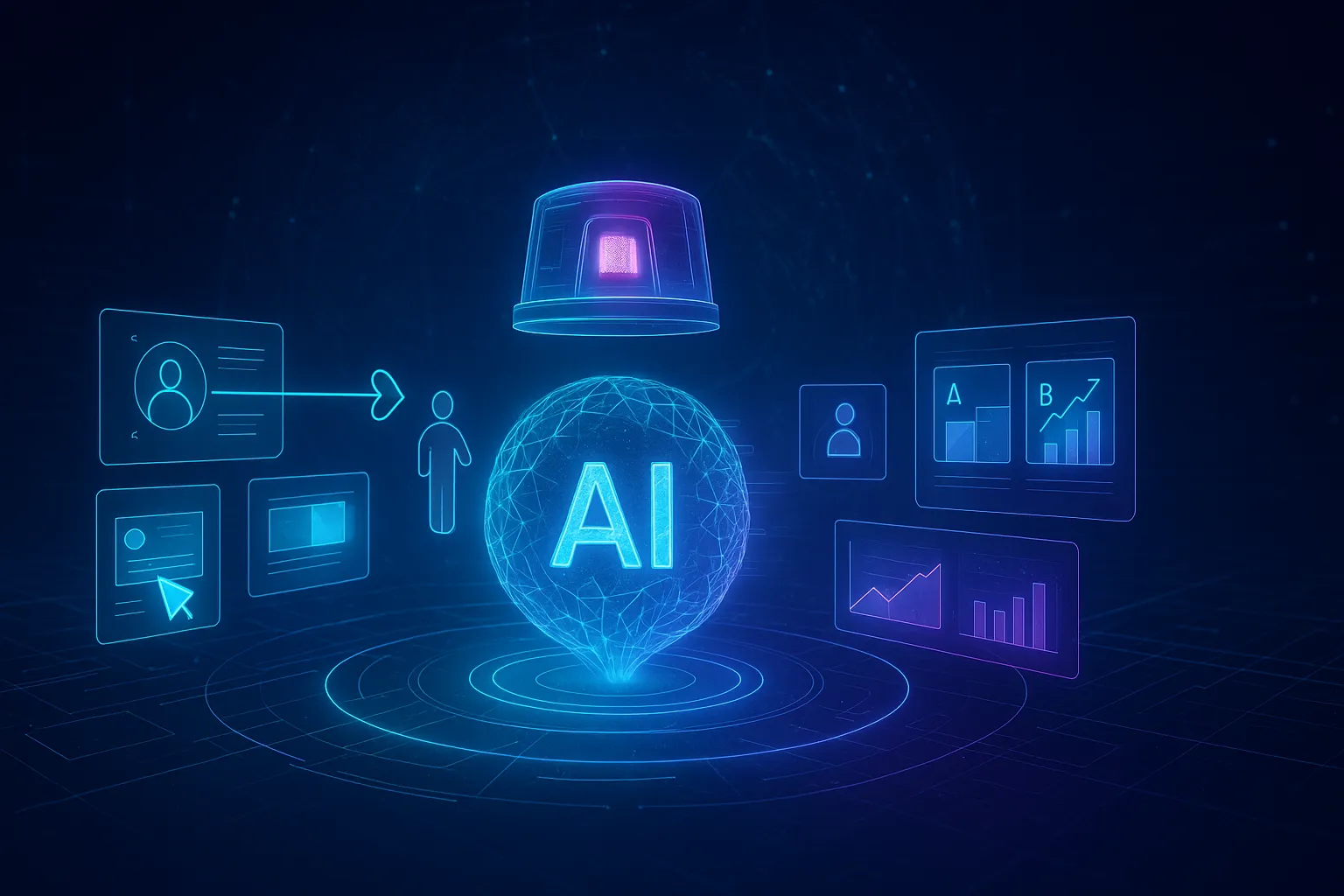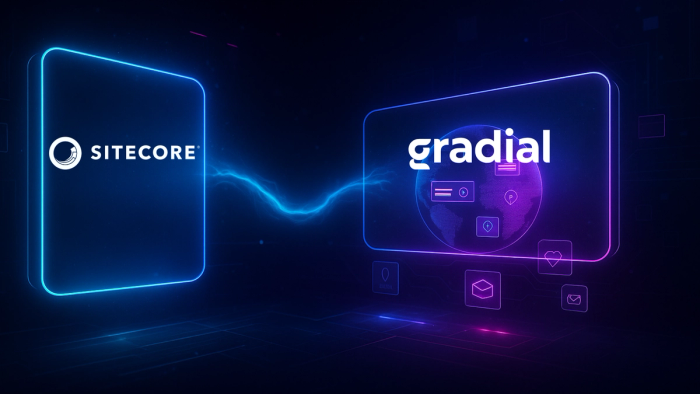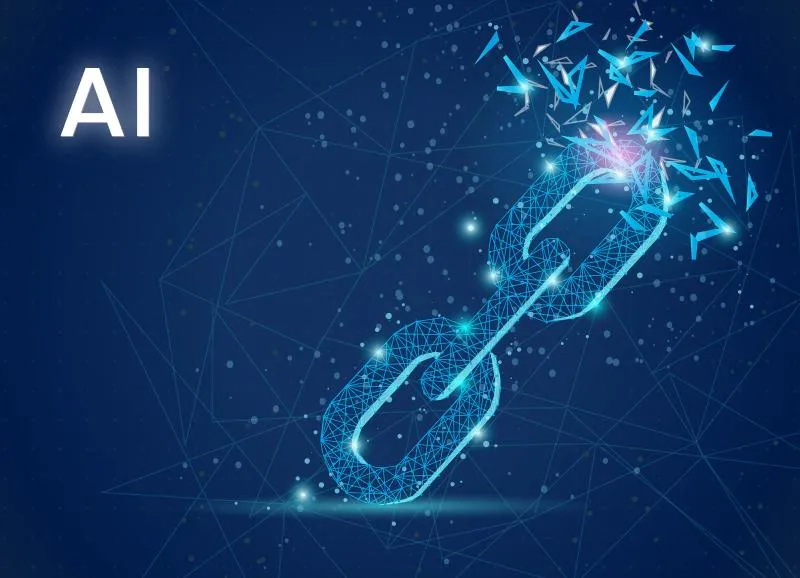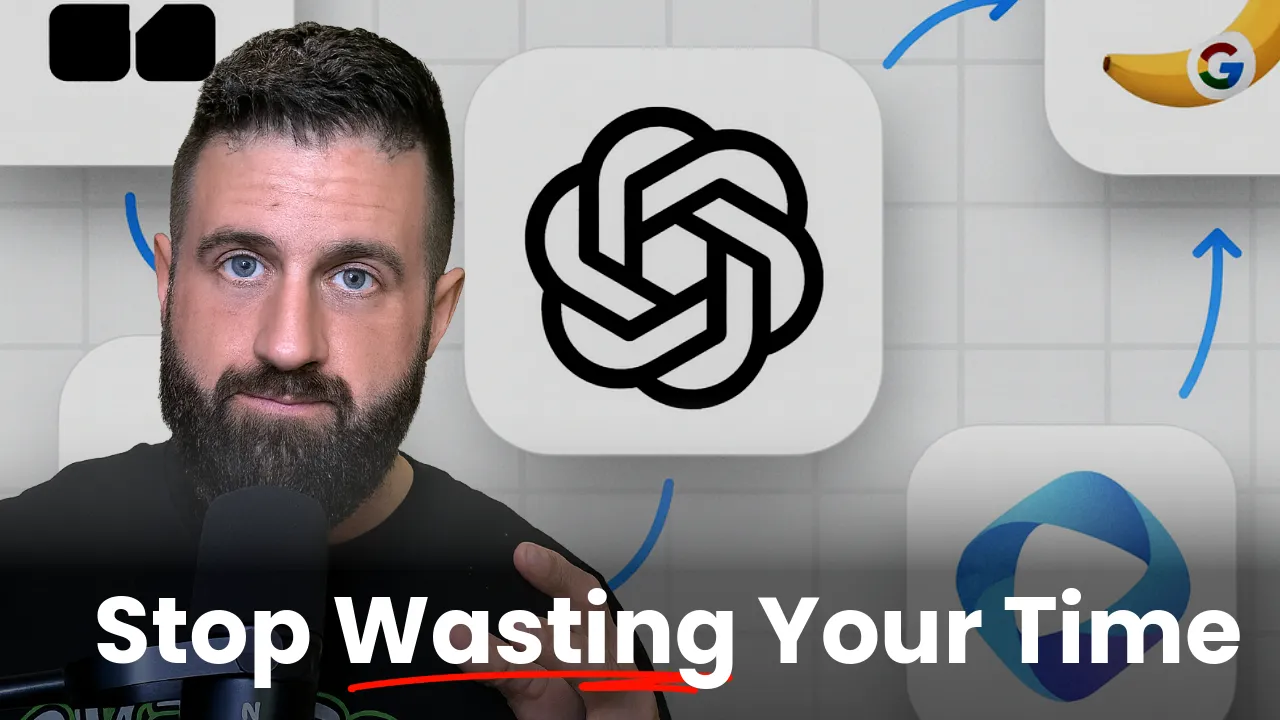5 Ways AI Is Making Marketing More Intelligent Right Now
Oct 14, 2025 | 4 min read

AI is changing marketing from guesswork to precision. In the past, marketers relied on manual testing, gut instincts, and long reports to make decisions. Now, AI tools analyze data in real time, predict what works, and even write and test content automatically.
This article explains five real ways AI is making marketing more intelligent right now — from predictive analytics and automated content to adaptive targeting, smart A/B testing, and deeper customer insights.
Quick Answer
AI helps marketers work smarter by:
- Predicting what customers will do next.
- Creating and optimizing content automatically.
- Targeting the right audience at the right time.
- Running faster, smarter A/B tests.
- Turning raw data into clear customer insights.
1) Predictive analytics: seeing what’s next
Plain answer: AI tools can predict which campaigns or leads will perform best before you spend the budget.
Predictive models use large sets of data — like clicks, purchases, and engagement — to find patterns. Tools such as Salesforce Einstein, HubSpot AI, and Google Analytics 4 predictive metrics help marketers see which audiences or campaigns are most likely to convert. (Google GA4 Predictive Metrics)
This lets teams adjust spend early, build better audiences, and hit targets faster.
2) Automated content: faster, consistent creation
Plain answer: AI can help write, edit, and update content faster — while staying on brand.
Tools like Gradial and Sitecore Content Hub allow teams to create and manage large volumes of content automatically. Gradial’s agentic AI platform drafts and refreshes content, while Sitecore ensures every version follows the right workflow and approval. (Gradial overview)
AI content tools now handle:
- Writing headlines and summaries
- Translating and localizing content
- Suggesting visuals and SEO keywords
- Refreshing outdated content automatically
The result is faster delivery, consistent tone, and less manual editing.
Want to explore how AI fits into your content stack?
Book a CI Digital working session — we’ll help you connect Sitecore, Gradial, and your compliance workflow to create content that’s both smart and audit-ready.

3) Adaptive targeting: reaching the right audience
Plain answer: AI adjusts who sees your message based on behavior, not just basic demographics.
Platforms like LinkedIn Campaign Manager and Meta Advantage+ use AI to find the people most likely to engage or convert. These systems learn from past campaigns, analyze performance in real time, and automatically shift budgets to the best segments. (LinkedIn AI optimization)
This means ads reach people when they’re most interested — reducing waste and improving return on ad spend (ROAS).
4) Smart A/B testing: finding winners faster
Plain answer: AI testing tools can automatically create and compare versions of your ads, emails, or web pages.
Tools like Optimizely, Google Optimize (Sunset, now in GA4 Experiments), and HubSpot AI Experiments use machine learning to predict which version will perform better. (Optimizely Feature Experimentation)
AI testing can:
- Auto-generate new test variations
- Identify winning versions faster
- Shift traffic automatically to high-performing content
- Reduce human bias in experiment design
This speeds up decision-making and helps teams learn from every campaign.
Related Article: Read our guide on Creating an AI-powered Content Supply Chain for Regulatory Markets if you want to scale content across channels while staying compliant and consistent
5) Customer insights: turning data into action
Plain answer: AI brings together data from websites, CRMs, and apps to show what customers actually care about.
With tools like Salesforce Data Cloud, Adobe Sensei, and Microsoft Customer Insights, marketers can:
- Combine all customer touchpoints in one view
- Find hidden segments or intent signals
- Personalize offers automatically
- Predict when a customer might leave or buy again
This makes decisions faster and campaigns more relevant.
(Salesforce Data Cloud overview)
Conclusion
AI isn’t replacing marketers — it’s giving them better tools. By 2026, the smartest marketing teams will use AI to predict trends, write content, target audiences, test faster, and understand customers deeply.
Ready to see how AI can make your marketing more intelligent? Book a CI Digital working session — we’ll help you build the right AI stack, from Gradial to Sitecore, and turn insights into real growth.



 Gradial
Gradial  PEGA
PEGA 





